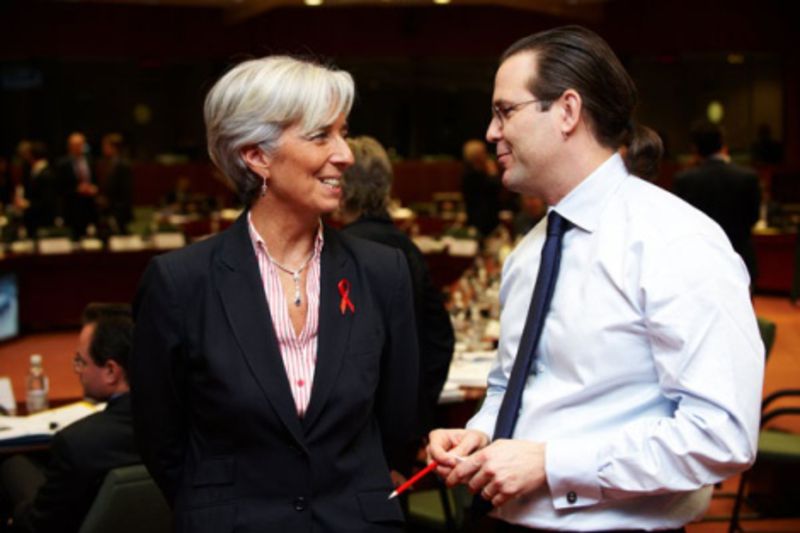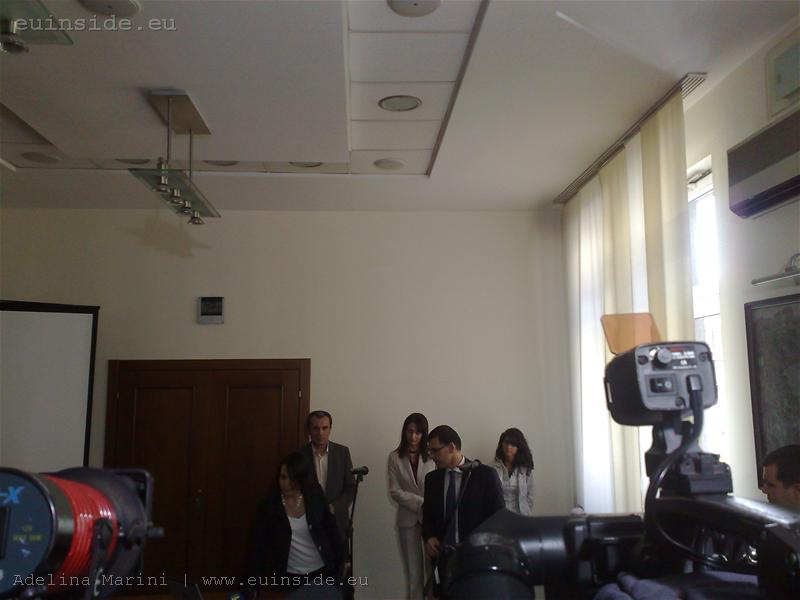Plamen Oresharski expectes difficulties for Bulgaria in coming months
Adelina Marini, May 20, 2009
 If the economic situation doesn't change significantly in the mid-term Bulgaria will have to lead a more conservative fiscal policy as a reaction against the decreasing competitiveness, the minister of Finance Plamen Oresharski said for reporters. But he refused to comment on the latest statistical data, showing that Bulgarian is already in recession. He said that it didn't; matter what term we would use the define the problem either recession or economic downturn, it was important for him that there's a drop of 3,5 % and the rest were interpretations. Oresharski also rejected the idea of a budget review before August or September as the tradition was for the last 20 years, including in times of elections.
If the economic situation doesn't change significantly in the mid-term Bulgaria will have to lead a more conservative fiscal policy as a reaction against the decreasing competitiveness, the minister of Finance Plamen Oresharski said for reporters. But he refused to comment on the latest statistical data, showing that Bulgarian is already in recession. He said that it didn't; matter what term we would use the define the problem either recession or economic downturn, it was important for him that there's a drop of 3,5 % and the rest were interpretations. Oresharski also rejected the idea of a budget review before August or September as the tradition was for the last 20 years, including in times of elections.
Asked by euinside whether there's a risk of further drop in budgetary income by then, Oresharski said: "statistically the probability for a drop or an increase is almost equal in value". He also said that he's not an optimist with regard to quick recovery: "I expect difficulties in the mid-term, related to the high level of risk in the economy as a whole and therefore the imbalances in the main interlinks between the real economy and the financial sector. One of the main problems of today is not the risk of bankruptcy of a large international bank, as was the case in 2008, but the main problem today is indeed the confidence between the financial and the real sector".
 Plamen Oresharski participated in an academic discussion "The crises and Bulgaria - a view from the past" in which Pirita Sorsa took part too. Now she is an analyst at the OECD and she was an IMF representative for Bulgaria. She also agreed that the main problem with the current crisis was the lack of confidence. With regard to Bulgaria she said that our country "is perceived a vulnerable because you have a very high current account deficit, very high, I think private, debt some of which short-term and people perceive this as a risk and that is why the problem is not the interest". For Bulgaria there's also another aspect - the collapse in global trade. This is one of the channels, according to Pirita Sorsa, through which Bulgaria could be affected because it would be very difficult for the country to export. The only solution though remains recovery in confidence.
Plamen Oresharski participated in an academic discussion "The crises and Bulgaria - a view from the past" in which Pirita Sorsa took part too. Now she is an analyst at the OECD and she was an IMF representative for Bulgaria. She also agreed that the main problem with the current crisis was the lack of confidence. With regard to Bulgaria she said that our country "is perceived a vulnerable because you have a very high current account deficit, very high, I think private, debt some of which short-term and people perceive this as a risk and that is why the problem is not the interest". For Bulgaria there's also another aspect - the collapse in global trade. This is one of the channels, according to Pirita Sorsa, through which Bulgaria could be affected because it would be very difficult for the country to export. The only solution though remains recovery in confidence.
There's another piece of advice, given by OECD to some countries - more public expenses. But this is only for countries which can afford it or, to put it simply - for countries with low public debt. Pirita Sorsa is also sceptic about the recovery of the economy as is the news from the US lately. She said it was too early to estimate whether and where there are signs of recovery because one day there are positive signs and on the next day - negative. "The situation is very uncertain" said the analyst in OECD Pirita Sorsa.
 | © Consilium
| © Consilium | © euinside
| © euinside